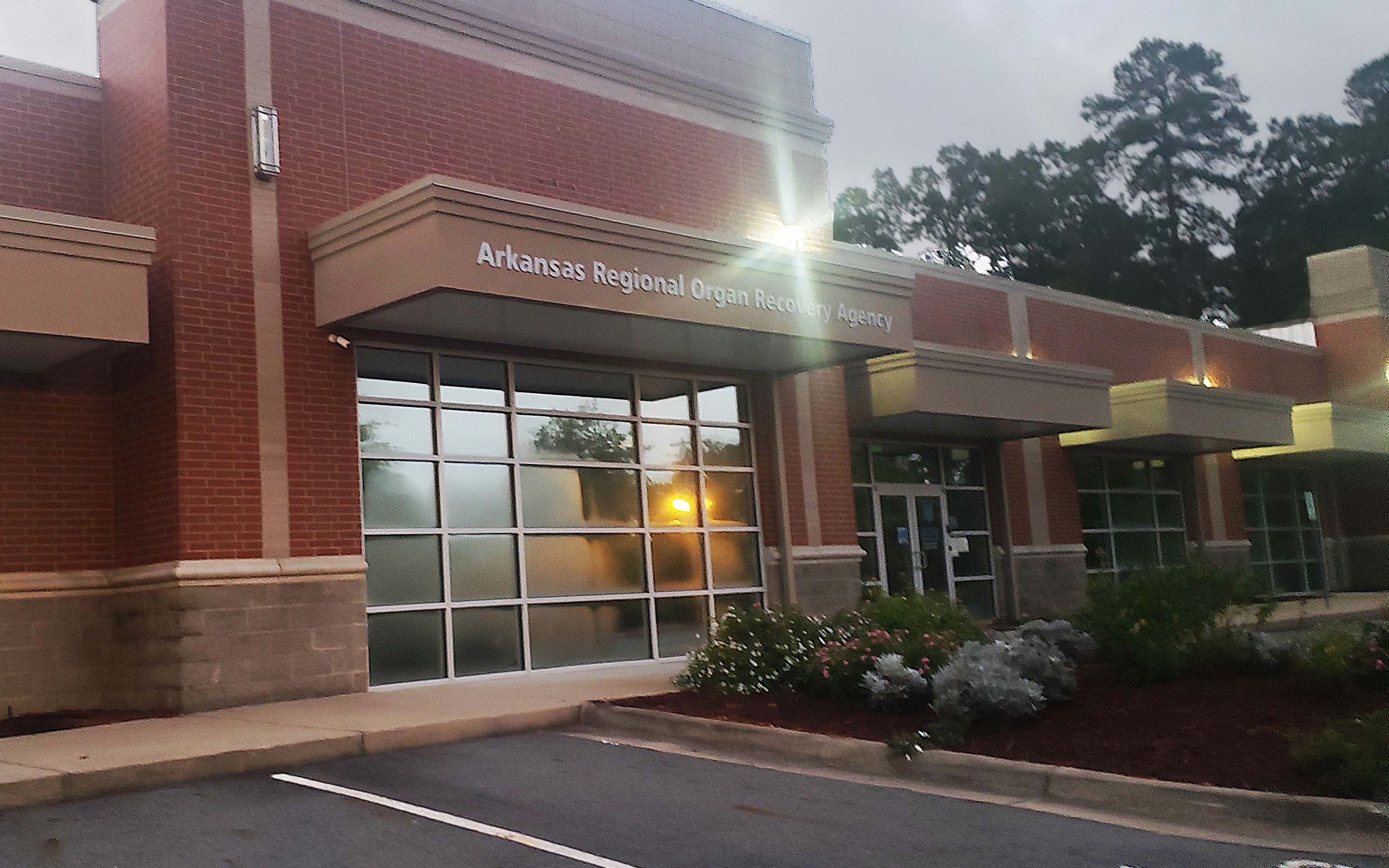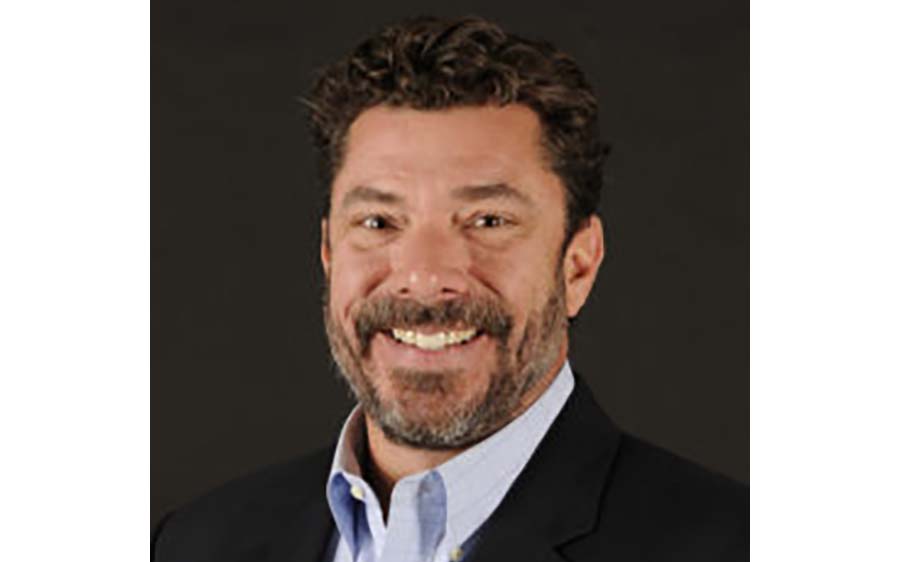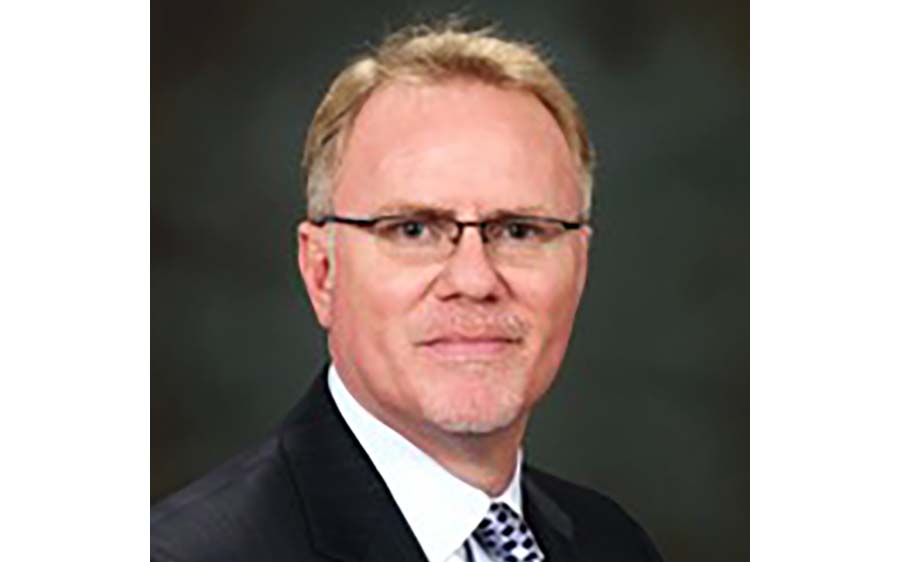ARORA’s top executive steps down amid federal organ donation reforms
October 4-10, 2021
By Wesley Brown
The executive director of the state’s largest organ procurement organization (OPO) is stepping down from his position as the local nonprofit agency known as ARORA faces possible decertification nearly 21 years after a federal court ruling saved it from a similar fate.
At the same time, the Arkansas Regional Organ Recovery Agency (ARORA) is conducting a national search to replace current President and Executive Director Alan Cochran, who announced his retirement at the beginning of 2021 but has remained on staff nearly 10 months as the nonprofit organ donation group seeks to replace him.
According to ARORA Board Chairman Seth Heldenbrand, the agency’s board is pleased with Cochran’s work during his almost seven-year tenure at the Little Rock-based organ procurer. However, the chairman of ARORA’s 12-person board of directors refused to answer questions from The Daily Record concerning the agency’s standing today as one of the worst performing OPOs in the U.S. under Cochran’s helm, based on current data from the U.S. Department of Health and Human Services’ (HHS) Centers for Medicare and Medicaid (CMS).
Heldenbrand also refused to respond to questions related to ARORA’s high turnover rate among the agency’s management and 80-plus person staff, as well as concerns about the clinical management and assessment of potential organ donors, particularly among Black and minority organ donors and patients seeking a life-saving transplant for a heart, kidney, lung, liver, intestine or pancreas.
ARORA is also fully engaged in the mostly unregulated tissue harvesting business unrelated to its life-saving mission. Industry critics say tissue harvesting allows OPOs such as ARORA to abuse the “gift of life” by selling non-life saving bones, skin, tendons, heart valves, and other body parts reaped from deceased organ donors that are sold to for-profit tissue banks and publicly-traded multinational biotech firms.
“I stand behind the leadership (Cochran) has offered ARORA in his tenure, and we wish him the best in retirement,” said Heldenbrand, associate dean of experiential education at the University of Arkansas for Medical Sciences (UAMS). “We have implemented a national search and have some truly exceptional candidates for his replacement.”
Meanwhile, Cochran’s replacement will be the fifth director to lead the beleaguered nonprofit since May 2014, when the agency’s board of directors hired longtime ARORA hospital director Michael Hudson to lead the local OPO. Today, ARORA has federal oversight for procuring life-saving organs for transplants in 64 of Arkansas’ 75 counties.
Hudson was fired after only a few months on the job following an unusual executive suite arrangement with longtime ARORA chief Boyd Ward who retired from the top position in early 2014. Like Cochran, however, Boyd remained on the job for several months after announcing his retirement, which caused conflict between the agency’s staff when Hudson became the agency’s top executive, Pulaski County court documents show.
In addition, former ARORA Medical Director Dr. William Fiser, who retired from the agency about the same time as Boyd, was later rehired as interim executive director after Hudson was fired in the summer of 2014. Prior to joining ARORA three months later in December 2014, Cochran had served as vice president of quality systems and tissue bank executive for 12 years at Los Angeles-based OneLegacy, the nation’s largest OPO that is now under investigation by a congressional subcommittee.
Only weeks after Cochran took the job, the agency’s former CFO Felicia Bowman filed a racial discrimination lawsuit in federal and local courts in 2015 alleging a long-held culture of systemic bias and lack of promotions for black employees at ARORA. Cochran responded by demoting and then firing the agency’s top Black executive who later lost her lawsuit before a Pulaski County jury in October 2017.
By that time, ARORA was putting out another management fire after the agency hired a felon and unlicensed accountant Gelia Ruple in June 2014 to replace Bowman. However, Cochran fired Ruple in March 2016 as the ARORA’s top finance and IT director after discovering purchases on the nonprofit’s credit card unrelated to business.
Following an investigation by the Pulaski County prosecutor’s office, Ruple was charged with felony theft and fraudulent use of a credit card. While that case was being investigated in lower court, Ruple was also facing federal charges in the U.S. District Court in Little Rock for wire fraud and embezzling $88,000 from her former Pope County employer before she was hired by ARORA.
In July 2018, Ruple reached a plea deal with state and federal prosecutors that involved paying restitution to ARORA and Russellville trucking firm Transco. After she admitted to a scheme of stealing more than $88,000 with a fellow employee, Ruple was sentenced to 11 to 15 months in federal prison and two years of supervised release. Later that year, she reported to federal prison in Aliceville, Ala., a minimum-security correctional facility, federal court filings show.
According to a July 19, 2018, story by the Arkansas Democrat Gazette, Cochran said Ruple had passed an initial background check with ARORA because her convictions were more than seven years old. He also told police he’d fired her after learning about her criminal past, which also included a 1994 federal conviction for fraudulently filing electronic tax returns with the IRS worth $60,000. Following the earlier federal charge, the former ARORA finance director was sentenced to a year in a halfway house the same year she lost her CPA license to practice in Arkansas.
New OPO reform rules highlight ARORA’s low organ donation rates
Meanwhile, Cochran’s expertise as a quality control specialist in the past two years has also come under questions after the Biden administration announced plans on March 31 to adopt new OPO reform rules. Those rules, which go into effect in early 2022, could lead to the Little Rock organ donation agency being decertified or merged into another out-of-state agency if it cannot improve its standing among the worst-performing organ donation agencies in the U.S.
To date, CMS has estimated that these new reform rules could increase the number of organs available for transplant by 5,600 per year and that the annual number of transplants performed could increase from nearly 33,000 to 41,000 by 2026. There are currently about 115,000 people on the nation’s organ donor waiting list, federal data shows.
According to an HHS spokeswoman, CMS is replacing the existing OPO quality measures with two new standards and implementing new performance metrics based on objective data. “The first new measure is a donation rate tool based on the number of organs an OPO has procured from eligible donors in a specific Donor Service Area (DSA). That proposal also ensures OPOs pursue all potential donors, even those only able to donate one organ,” a CMS official told The Daily Record.
A second measure no longer allows OPOs to get credit for merely procuring an organ from a deceased donor without it being transplanted. The new performance scale also creates an incentive for OPOs to transplant and use all viable organs. Those donations will be measured with objective data from the Health Resources and Services Administration (HRSA) and the Centers for Disease Control (CDC), which are also part of HHS.
Once the new rules are in place in January, OPOs will be placed in one of three tiers at the end of each recertification cycle. According to the final proposal, the highest performing OPOs ranked in the top 25% will be assigned to Tier 1 and automatically recertified for another four years. Tier 2 OPOs are the next highest performing OPOs, where both measures exceed the median but do not reach the highest level. This group will not automatically be recertified but will have to compete to retain their DSA.
Tier 3 OPOs, which includes ARORA and seven other OPOs, are the lowest-performing organ donation agencies with one or both measures below the median. If they do not improve, Tier 3 OPOs will be decertified and won’t be able to compete for any other open DSA.
Ironically, under former Arkansas governor and President Bill Clinton, ARORA was the last OPO that HHS sought to decertify in July 2000 when the local nonprofit did not meet federal performance standards. Those rules required all organ donation agencies to meet at least 75% of the national mean in four of 5 categories. A federal judge eventually granted ARORA’s motion for a summary judgment against the HHS and allowed the OPO to continue to operate under a new executive team led by Boyd and Fiser.
As noted, the first four-year OPO certification cycle under the CMS new regulations starts in 2022, CMS officials said. OPOs will be held accountable for the new measures for recertification purposes in 2026.
Dying Black transplant patients
However, a bipartisan congressional committee is seeking to accelerate those new OPO reforms and improve transparency and oversight of the nation’s 56 OPO monopolies. In virtual hearings held in Washington, D.C., on May 5, Rep. Raja Krishnamoorthi, D- Ill., chair of the House Subcommittee on Economic and Consumer Policy, said the nation’s dysfunctional organ donation and transplant system and OPO failures fall disproportionately on patients of color.
That House panel heard nearly two hours of testimony about racial disparities and discrimination in the current OPO system, leading to deaths daily for Black transplant candidates waiting for a life-saving organ donation.
“Equity matters, ethically, scientifically and by law. People of color are 1.5 – 4 times more likely to have conditions leading to kidney and liver failure but less likely to receive transplants,” testified Donna Cryer, president and CEO of the Global Liver Institute. “Multiple surveys and research studies have shown that OPO staff are less likely to approach families of color for consent, have less frequent conversations, spend less time in those conversations, and demonstrate bias in assumptions of who would be eligible or willing to donate.”
In a statement supporting moving up the date before the new OPO reforms go into effect, the National Kidney Foundation (NKA) said although a kidney transplant is the optimal treatment for kidney failure, Black patients face barriers to access at every step of the process and on average wait a year longer than white patients to receive a kidney transplant. Black patients are also less likely to receive a transplant evaluation, have less access to the waitlist, spend longer on the transplant waitlist, are less likely to survive on the waitlist, and have lower rates of graft survival post-transplant, the foundation said.
Cochran would not speak with The Daily Record concerning a consultant’s report and federal data from the HHS’s Scientific Registry of Transplant Recipient (SRTR) showing dramatically lower consent rates among minorities in ARORA’s 64-county DSA. Today, there are 211 transplant candidates on the Little Rock OPO’s waiting list for life-saving organs.
Of that total, African Americans make up 89 or 42.1% of the transplant candidates compared to only 79 or 37.4% for whites, SRTR data shows. Of the Black candidates on the ARORA transplant waiting list, 79 need a hard-to-get kidney. Nationally, Black people make up 28.1% of the organ transplant candidates, compared to 40.4% for whites.
Despite ARORA’s underperforming status, especially among Black organ donors and transplant candidates in Arkansas, the agency’s board of directors paid Cochran and the agency’s clinical director, Walt Nickels, ample performance bonuses in fiscal 2019, the same year President Trump introduced the new OPO reform rules. Cochran’s total salary and compensation that year was $272,271, including base pay of $223,622 with a 10.5% bonus of $23,625. Nickel’s salary that year was $129,175, along with a 10.4% annual bonus of $13,455.
According to ARORA’s 990 tax filings, those bonuses were based on net earnings of the agency, which is unrelated to the agency’s federally mandated mission of saving lives.





